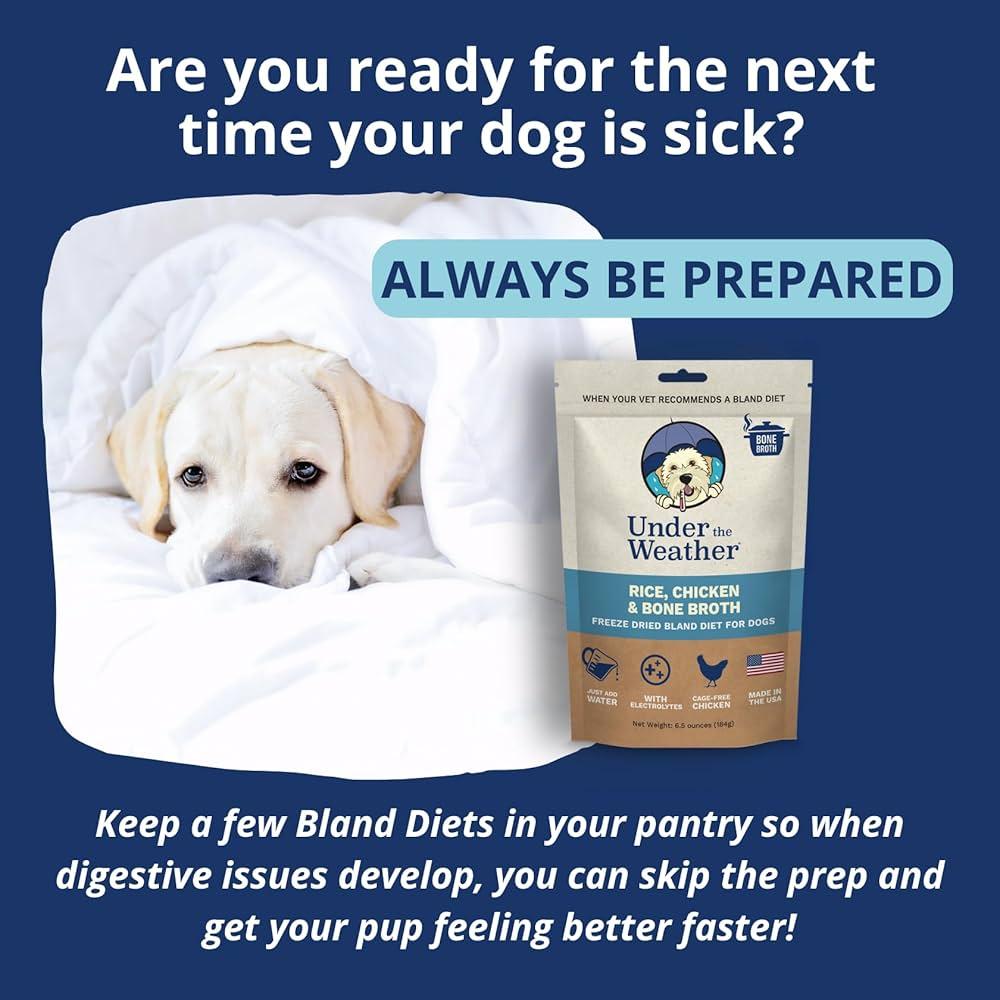When our furry friends fall ill, it’s only natural for us to want to do everything in our power to help them recover swiftly and comfortably. Just as with humans, nutrition plays a pivotal role in a dog’s healing process. Knowing what to feed a sick dog can be the key to ensuring a speedy recovery, restoring their vitality and wagging tail. In this guide, we will explore nurturing and effective dietary options tailored to support your dog’s health during their time of need. Whether your pet is battling an upset stomach, recovering from surgery, or dealing with a chronic condition, these gentle yet nourishing food choices will help bolster their strength and boost their immune system. Let’s embark on this journey to understand how we can best care for our beloved companions through the power of a well-balanced diet.
Understanding Your Dogs Nutritional Needs During Illness
When your furry friend is feeling under the weather, understanding their nutritional needs is crucial for a swift recovery. A balanced diet tailored to their condition can make a significant difference. Hydration is paramount, so ensure they have access to fresh water at all times. In addition, providing easily digestible foods can help alleviate stress on their digestive system.
- Boiled Chicken: Skinless and boneless chicken is gentle on their stomach and high in protein.
- Rice: White rice can help firm up stools and is easy on digestion.
- Pumpkin: Canned pumpkin can soothe an upset stomach and is rich in fiber.
- Bone Broth: Offers nutrients and hydration, and can entice a sick dog to eat.
- Sweet Potatoes: Rich in vitamins, they are a gentle carbohydrate source.
Consult with your veterinarian to ensure the diet aligns with your dog’s specific needs and health conditions. With the right nutrition, your loyal companion will be on the road to recovery in no time.

Gentle Foods to Soothe and Heal
When your furry friend is feeling under the weather, it’s essential to offer foods that are both comforting and nutritious to help them bounce back. Start by preparing a bland diet to ease their digestive system. Consider these gentle options:
- Boiled Chicken Breast: Skinless and boneless, this protein-rich choice is easy to digest and provides essential nutrients.
- Plain White Rice: A perfect partner to chicken, it offers carbohydrates that are gentle on the stomach.
- Mashed Sweet Potatoes: Packed with vitamins, sweet potatoes are soothing and can help with hydration.
- Low-Sodium Chicken Broth: Enhance their appetite and hydration with a flavorful broth that doesn’t overload their system.
Remember to serve these meals at room temperature and in small portions to avoid overwhelming their sensitive stomach. Always ensure that fresh water is available, and consult with your veterinarian if symptoms persist.
Hydration and Supplements for Faster Recovery
Ensuring your sick dog stays well-hydrated is crucial for a swift recovery. Water is essential, but when your furry friend is under the weather, sometimes it needs a little extra encouragement to drink. Consider offering ice cubes flavored with low-sodium chicken broth, which can be more enticing than plain water. Electrolyte solutions formulated specifically for pets can also help maintain hydration levels and replenish vital nutrients. Always consult your veterinarian before introducing any new products.
In addition to hydration, supplements can play a supportive role in recovery. Probiotics are a great choice to help restore healthy gut flora, especially if your dog has been on antibiotics. Omega-3 fatty acids, found in fish oil, are beneficial for reducing inflammation and promoting overall wellness. Additionally, vitamin C can boost the immune system, helping your pup fight off illness more effectively. Incorporate these supplements with care and under veterinary guidance to ensure they complement your dog’s diet and health needs.
Creating a Feeding Schedule that Supports Healing
When your furry friend is under the weather, crafting a feeding schedule that aligns with their healing process is crucial. Consider starting with small, frequent meals to ensure their digestive system isn’t overwhelmed. This can also help maintain their energy levels throughout the day. Consistency is key, so try to feed them at the same times each day. This routine not only aids digestion but also offers a comforting structure during a time when everything else might feel out of sorts.
- Morning: Offer a light meal such as boiled chicken and rice, which is gentle on the stomach.
- Midday: Provide a small portion of plain yogurt, rich in probiotics to support gut health.
- Afternoon: Serve a broth-based meal to ensure they stay hydrated and receive essential nutrients.
- Evening: Conclude with a balanced meal that includes lean protein and steamed vegetables.
Remember to monitor their response to each meal, adjusting the ingredients and portions as necessary. Consult with your veterinarian to tailor the schedule to your dog’s specific health needs, ensuring the best support for their recovery journey.

